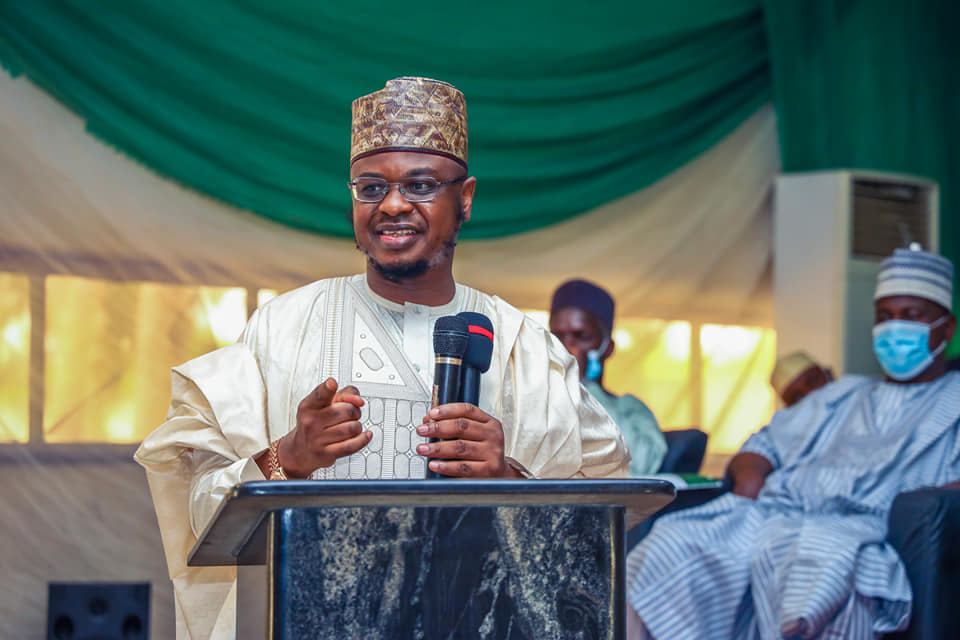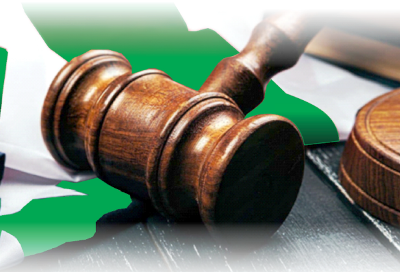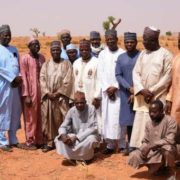By Dr Isa Ali Ibrahim Pantami
I am highly delighted to be at this event to mark the commencement of the e-governance training program for the members of the Kano State Executive Council. This program marks a significant milestone in our efforts to promote sustainable digital transformation across the country. We initiated the training as a result of the discussions we had with the Executive Governor when he paid me a courtesy call at my Office on the 9th of March, 2021.
The training is the first of its kind in Nigeria at the state level, and there cannot be a better place to start than Kano State. Kano State is the most populous state in Nigeria and the commercial nerve centre of Northern Nigeria. Historically, the people of Kano have always been known to be hardworking and industrious. They were among the first people to establish major industries and conglomerates in Nigeria, trading in food and drinks, textile and footwear, tanning, ceramics, and furniture.
The commencement of this programme makes Kano State Executive Council Members the first beneficiaries of this programme, specially designed to provide the state policy makers an opportunity to build their capacity on e-Governance and digital transformation. By the end of this programme, Kano State will be well positioned to develop a strong digital economy, which will have a transformational impact on the state and entire nation at large.
E-government and E-governance in Nigeria
The terms e-government and e-governance appear to be similar but they are slightly different. According to the World Bank “E-Government refers to the use by government agencies of information technologies (such as Wide Area Networks, the Internet, and mobile computing) that have the ability to transform relations with citizens, businesses, and other arms of government. In a similar vein, the United Nations defined e-government as the utilization of the “Internet and the world-wide-web for delivering government information and services to citizens.”
UNESCO defines E-governance as the “public sector’s use of information and communication technologies with the aim of improving information and service delivery, encouraging citizen participation in the decision-making process and making government more accountable, transparent and effective… Its objective is to engage, enable and empower the citizen.”
Fig. 1: E-governance vs E-government
In light of global trends in the delivery of government services which is increasingly being characterized by the digitization of processes, the Federal Ministry of Communications and Digital Economy developed the Nigerian E-government Master Plan (NEGMP) with the vision “to create a world class, open and digitized government that connects with people to drive efficiency in public administration, responsiveness of civil services and transparency in governance leading to improvement of the quality of life of Nigerians”.
This is in line with the Ministry’s mandate to “Utilize ICT to drive transparency in governance and improve the quality and cost effectiveness of public service delivery in Nigeria”. The Plan was developed with specific strategies that will improve the quality of citizen’s lives by enhancing national competitiveness, facilitating market economy, promoting participatory democracy, and improving transparency in the public sector.
These strategies include the expansion of the number of public sector personnel trained on e-Government and the publicizing of e-Government initiatives at the Federal and State Level. Various Capacity Building Programs have therefore been developed to aid the attainment of this goal.
Nigeria’s Digital Transformation Agenda
The National Digital Economy Policy and Strategy (NDEPS) was developed and launched in 2019 to reposition the Nigerian Economy in order to take advantage of the many opportunities that digital technologies provide. This is in line with the vision of Mr. President to diversify the economy of Nigeria away from the dependence on the oil and gas sector.
As you may know, the NDEPS is anchored on eight (8 pillars, one of which is the Digital Literacy and Skills Pillar which provides policy backing for massive training of Nigerians from all works of life in order to enable them obtain digital literacy and other digital skills. An objective of the NDEPS is to support training and Capacity Building among public sector employees in the development and use of digital tools and applications to improve the delivery of government services.
RELATED
FG Begins National E-Governance, Digital Transformation Training With Kano Pilot Programme
Pantami Gives Account Of Stewardship As Digital Economy Minister
Furthermore, the Service Infrastructure Pillar provides support for Government Digital Services and the provision of robust digital platforms to drive the Digital Economy. This pillar supports the provision of a online platforms for government to interact with citizens and investors. It supports the deployment of government digital services and a paperless system. A key objective of the Service Infrastructure Pillar is the implementation of the eGovernment Master Plan.
The NEGMP and NDEPS were carefully designed for the acceleration of our Digital Transformation Agenda towards the desired economic growth and the positioning of Nigeria as a major competitor in the Global Economy.
The benefits of digital platforms stem from their ability to virtually connect people and things, facilitating digital transactions/interactions, including the exchange of information, goods, and services. Digital platforms are at the core of the digital economy. The digitisation of key operations in public service such as the use of the Bank Verification Number (BVN), Treasury Single Account (TSA) and the Integrated Payroll and Personnel Information System (IPPIS) have enabled the Nigerian government to improve public service delivery to Nigerians, save cost and fight corruption. Our efforts towards the expansion of the National Identification Number (NIN) database has improved our level of e-governance in the country.
We now have about 60 million unique enrolments and the use of a foundational ID is a key requirement for developing a digital economy.
Distinguished participants, you may recall that His Excellency, President Muhammadu Buhari, GCFR, on November 28, 2019, at the Opening Ceremony the e-Nigeria International Conference, Exhibition and Awards, gave the directive for the establishment of Digital Transformation Technical Working Groups (DT-TWGs) in all Federal Public Institutions (FPIs). FPIs are e-Government Champions and vital to the implementation of the Nigeria e-Government Master Plan (NeGMP) and the National Digital Economy Policy and Strategy (NDEPS).
Nigeria e-Government Interoperability Framework (Ne-GIF), and Nigeria Government Enterprise Architecture (NGEA)
A key requirement of the e-Government Master Plan and NDEPS is for all government institutions, both the federal and state levels to create digital transformation technical working groups that will work with the Federal Ministry of Communications and Digital Economy and its Parastatals to ensure seamless and coordinated implementation of Government projects, programmes, and policies.
Despite the progress that has been made in the implementation of the goals of e-Government Master Plan in some states, much remains to be done, including institutional coordination, delivering government services online and monitoring the quality of digital services, and fully embracing the open government partnership. These are some of the fundamental issues that the Kano State Executive Council members will be able to appreciate and better understand during the course of this capacity building workshop, among other things.
The Federal Ministry of Communications and Digital Economy through its agencies has initiated a number of policies and frameworks to set clear directions for Government digital transformation in Nigeria. These include the Nigeria e-Government Interoperability Framework (Ne-GIF), and Nigeria Government Enterprise Architecture (NGEA).
Ne-GIF has two main goals; firstly to promote ‘One Government’ digital services, and secondly to guarantee the autonomy of Federal Public Institutions (FPIs) to make individual decisions around business processes, digital services, and applications. The Nigeria Government Enterprise Architecture (NGEA) aims to drive short, medium, and long-term digital transformational impact. This shall be done by reducing the complexity associated with digital transformation, accelerating its adoption, and helping government parastatals to quickly execute digital initiatives.
Some priority actions for State Governments are as follows:
Improving digital infrastructure state-wide including rural areas where significant number of the most marginalized segments of the population live without Internet access;
Strengthening and increasing availability of digital platforms so that citizens can have easy access to government digital services, capacity building, scholarships and grants, loans and other intervention schemes;
Improving the policy environment for digital entrepreneurship such as adopting developmental regulation, providing tax breaks and stating clear incentives for innovation; and
Closing the digital skills knowledge gap by targeted training of youths and upskilling the workforce.
Through innovations and investments, the Nigerian economy can harness digital data and new technologies, generate new content, link individuals with markets and government services, and roll out new, sustainable business models. Digital technologies will spur innovation, efficiency, and productivity, and as a result will create mass jobs, bring about opportunities for greater growth and inclusion.
On a final note, I recall the projection made by the World Bank in its 2018 digital economy diagnostic report. The Report forecasted that e-commerce spending in Nigeria will reach around USD 75 billion in revenues by 2025. To put this into context, the 2021 national budget passed by the National Assembly was around USD 36 billion. The future therefore is really digital and our economy stands to benefit for the adoption and use of e-platforms.
As such, we are very pleased that the Kano State Government has taken the right step in keying into Federal Government’s vision of transforming Nigeria into a leading digital economy, providing quality life and digital economies for all. We are also very glad to hear that the State Government plans to invest in fibre optics. Together we can create wealth and prosperity for the State and for our nation. I am equally delighted to announce that the Federal Government of Nigeria will donate 110 Special Tablets for the proper take off of e-governance in Kano State.
I want to use this opportunity to express our sincere appreciation once again to His Excellency, President Muhammadu Buhari, GCFR, for providing the vision and leadership as well as his unwavering support. We could not have been able to achieve what the Ministry and its Parastatals achieved without Mr President’s continued support and we are most appreciative.
I also want to use the opportunity to appreciate the Government and people of Kano State for the continued commitment to Mr President’s initiatives. I assure His Excellency of our willingness to collaborate and support the State in domesticating Federal Government’s policies and programmes, as exemplified by the commencement of this one-of-a-kind programme. I also commend the Director General of NITDA, Kashifu Inuwa Abdullahi, CCIE, and his management team for organizing this programme.
I thank you for your attention and may the Almighty make this training very successful.
Excerpts of keynote address by Minister of Communications and Digital Economy, Dr Isa Ali Ibrahim Pantami, at the capacity building program on E-Governance and Digital Transformation for members of the Kano State Executive Council on Monday, 2nd August 2021.

































